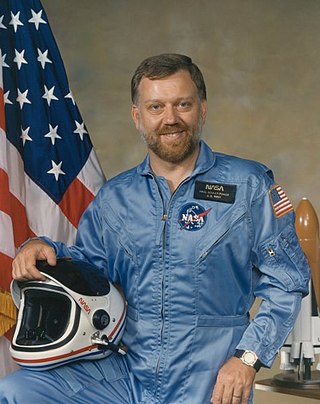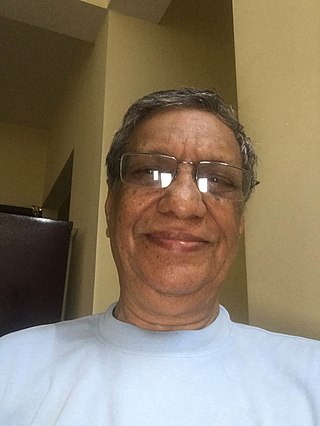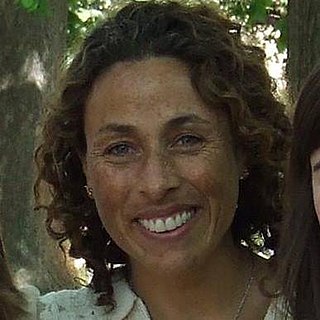Related Research Articles

The Scripps Institution of Oceanography, located in San Diego, California, is one of the oldest and largest centers for ocean and Earth science research in the US. Originally founded in 1903, since becoming part of the University of California system in 1912, the institution has expanded its scope to include studies of the physics, chemistry, geology, biology, and climate of Earth.

Paul Desmond Scully-Power, AM GOSE FRAeS is an Australian-American oceanographer, technology expert and business executive. In 1984, while a civilian employee of the United States Naval Undersea Warfare Center, he flew aboard NASA Space Shuttle mission STS-41-G as a Payload Specialist. He was the first Australian-born person to journey into space, and the first astronaut with a beard.

A large igneous province (LIP) is an extremely large accumulation of igneous rocks, including intrusive and extrusive, arising when magma travels through the crust towards the surface. The formation of LIPs is variously attributed to mantle plumes or to processes associated with divergent plate tectonics. The formation of some of the LIPs in the past 500 million years coincide in time with mass extinctions and rapid climatic changes, which has led to numerous hypotheses about causal relationships. LIPs are fundamentally different from any other currently active volcanoes or volcanic systems.

Gerald R. Dickens is Professor of Earth Science at Trinity College Dublin, and is a researcher into the history of the world’s oceans, with respect to the changing patterns of their geology, chemistry and biology.

Prem Chand Pandey is an Indian space scientist, planetary scientist, and academic in the fields of satellite oceanography, remote sensing, atmospheric science, the Antarctic and climate change, and also he is the founding director of the National Centre for Polar and Ocean Research (NCPOR).
Paul G. Falkowski is an American biological oceanographer in the Institute of Marine and Coastal Sciences at Rutgers University in New Brunswick, New Jersey. His research work focuses on phytoplankton and primary production, and his wider interests include evolution, paleoecology, photosynthesis, biogeochemical cycles and astrobiology.
Robert W. Corell is an American global climate scientist, principal for the Global Environment & Technology Foundation, an ambassador for ClimateWorks, professor II at the University of the Arctic's new Institute of Circumpolar Reindeer Husbandry, a professor II at the University of Tromso, and director of the Sarasota, Florida-based Climate Adaptation Center (CAC). He is a partner of the Sustainability Institute and its C-ROADS Climate Interactive Initiative, and head of US Office for the Global Energy Assessment. In 1996 he was Awarded Brazilian Order of Scientific Merit by the President of Brazil. In 2003 a Mountain region in Antarctic was named the "Corell Cirque" in his honor. He contributed to the assessment reports of the Intergovernmental Panel on Climate Change, an organisation that was co-awarded the 2007 Nobel Peace Prize, and in 2010 he was awarded an honorary Doctor of Veterinarian Medicine by the Norges veterinærhøgskole . He joined the H. John Heinz III Center for Science, Economics and the Environment in 2006 as vice president for programs and policy.

The Institute for Marine and Antarctic Studies (IMAS) is a teaching and research institute of the University of Tasmania in Hobart, Tasmania. IMAS was established in 2010, building upon the university's partnership with CSIRO Oceans and Atmosphere and the Australian Antarctic Division in cooperative Antarctic research and Southern Ocean research.
Harry Leonard Bryden, FRS is an American physical oceanographer, professor at University of Southampton, and staff at the National Oceanography Centre, Southampton. He is best known for his work in ocean circulation and in the role of the ocean in the Earth's climate.

Dawn Jeannine Wright is an American geographer and oceanographer. She is a leading authority in the application of geographic information system (GIS) technology to the field of ocean and coastal science, and played a key role in creating the first GIS data model for the oceans. Wright is Chief Scientist of the Environmental Systems Research Institute. She has also been a professor of geography and oceanography at Oregon State University since 1995 and is a former Oregon Professor of the Year as named by the Council for the Advancement and Support of Education and the Carnegie Foundation for the Advancement of Teaching. Wright was the first African-American female to dive to the ocean floor in the deep submersible ALVIN. On July 12, 2022 she became the first and only Black person to dive to Challenger Deep, the deepest point on Earth, and to successfully operate a sidescan sonar at full-ocean depth.
Sharon Mosher is an American geologist. She did her undergraduate work at University of Illinois Urbana-Champaign. After earning an MSc from Brown University, she returned to the University of Illinois to get her PhD in Geology in 1978. Since 2001 she has held the William Stamps Farish Chair at University of Texas, and, since 2009 she has served as the dean of the Jackson School of Geosciences at Texas. In 2013 she became the president of the American Geosciences Institute.

Susan K. Avery is an American atmospheric physicist and President Emerita of the Woods Hole Oceanographic Institution (WHOI) in Massachusetts, where she led the marine science and engineering research organization from 2008–2015. She was the ninth president and director and the first woman to hold the leadership role at WHOI. She is Professor Emerita at the University of Colorado, Boulder (UCB), where she served on the faculty from 1982–2008. While at UCB she also served in various administrative positions, including director of the Cooperative Institute for Research in Environmental Sciences (CIRES), a 550-member collaborative institute between UCB and the National Oceanic and Atmospheric Administration (NOAA) (1994-2004); and interim positions (2004-2007) as vice chancellor for research and dean of the graduate school, and provost and executive vice chancellor for academic affairs. Currently she is a senior fellow at the Consortium for Ocean Leadership in Washington, D.C.
Kolluru Sree Krishna is an Indian marine geophysicist and the chief scientist at the National Institute of Oceanography, India. He is known for his studies on the evolution of the Indian Ocean and is an elected fellow of all the three major Indian science academies: Indian National Science Academy, Indian Academy of Sciences, and the National Academy of Sciences, India. The Council of Scientific and Industrial Research, the apex agency of the Government of India for scientific research, awarded him the Shanti Swarup Bhatnagar Prize for Science and Technology, one of the highest Indian science awards for his contributions to Earth, Atmosphere, Ocean and Planetary Sciences in 2001.

Trevor John McDougallFAGU is a physical oceanographer specialising in ocean mixing and the thermodynamics of seawater. He is Emeritus Scientia Professor of Ocean Physics in the School of Mathematics and Statistics at the University of New South Wales, Sydney, Australia, and is Past President of the International Association for the Physical Sciences of the Oceans (IAPSO) of the International Union of Geodesy and Geophysics.

Claudia Benitez-Nelson is a Latinx American oceanographer whose research focuses on marine geochemistry and biogeochemistry. A Carolina Distinguished Professor, she serves as the Senior Associate Dean for College Initiatives and Interdisciplinary Programs at the University of South Carolina’s College of Arts and Sciences.
Frederik J. Simons is a Flemish Belgian geophysicist. He is a professor at Princeton University in the Department of Geosciences. From 2010 to 2013, Simons was the Dusenbury University Preceptor of Geological & Geophysical Sciences. From 2004 to 2006, he was a lecturer in the Department of Earth Sciences at University College London. Between 2002 and 2004 he was a Harry H. Hess Postdoctoral Fellow in the Department of Geosciences and a Beck Fellow with the Council on Science and Technology, also at Princeton University.

Rosalind Mary Coggon is an English scientist who is a Royal Society University Research Fellow at the University of Southampton. She is the co-editor of the 2050 Science Framework, which guides multidisciplinary subseafloor research. She was awarded the 2021 American Geophysical Union Asahiko Taira International Scientific Ocean Drilling Research Prize.
References
- 1 2 POGO Profile Archived 2013-09-21 at the Wayback Machine
- ↑ IODP Annual Report 2004 Archived 2013-02-05 at the Wayback Machine